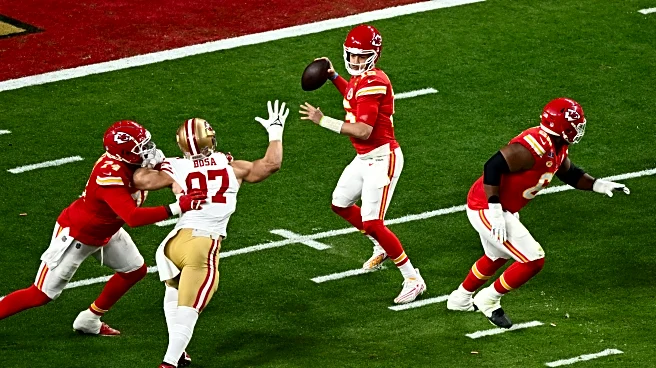Rapid Read • 8 min read
NATO has initiated the coordination of regular and large-scale deliveries of weapons to Ukraine, with a significant portion of these arms being purchased from the United States. This development follows the Netherlands' announcement of providing air defense equipment and other military aid worth $578 million to Ukraine. Sweden, along with Denmark and Norway, has also pledged $500 million in military support, including air defenses and antitank weapons. These efforts are in response to Ukraine's urgent battlefield needs, particularly for air defense systems, as Russia continues its aggressive military operations. The United Nations reports that over 12,000 Ukrainian civilians have been killed due to Russia's attacks on urban areas. The deliveries are expected to bolster Ukraine's defense capabilities as Russia attempts to capture strategic locations like the eastern city of Pokrovsk.
AD
The coordinated military support from NATO allies underscores the international community's commitment to aiding Ukraine in its defense against Russian aggression. The reliance on U.S. military supplies highlights the strategic importance of American defense capabilities in global security dynamics. This support is crucial for Ukraine as it faces a larger and more equipped Russian military force. The ongoing conflict has significant implications for European security and stability, with potential ripple effects on global political and economic landscapes. The aid also reflects a shift in NATO's role, as it balances providing support to Ukraine while avoiding direct involvement in the conflict.
The continued delivery of military aid to Ukraine is expected to enhance its defensive operations against Russian advances. As NATO allies increase their support, there may be further diplomatic and military engagements to ensure the effective use of these resources. The international community will likely monitor the situation closely, with potential adjustments in aid strategies based on the evolving conflict dynamics. Additionally, the U.S. and European countries may face domestic and international scrutiny regarding their involvement and the long-term implications of their support for Ukraine.
The ongoing conflict and the international response raise ethical and legal questions about military aid and its impact on global peace efforts. The situation also highlights the challenges of balancing national security interests with humanitarian concerns. The increased militarization in the region could lead to long-term shifts in defense policies and alliances, potentially influencing future geopolitical landscapes.
AD
More Stories You Might Enjoy












